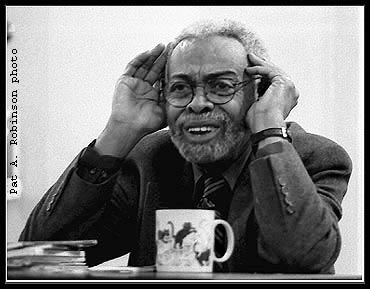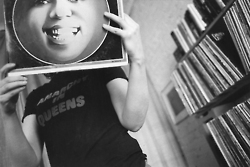I’m afraid this isn’t a terribly well written or thought out post. Spring has struck, my sinuses are buzzing with histamines and my brain is running slow and foggy. But I wanted to join up all these issues before I forgot them.
So this is a story about liquor licensing, live music economies (financial and cultural) and dance cultures. It’s not terribly well researched or referenced, so please do go on and explore the issue rather than relying on my dodgy interpretation of events. I mean, buggered if I really know anything about liquor licensing in Australia and within Australian states.
The ABC story Live music injects $1b into economy (Lucy Carter and staff, Posted September 19, 2011 10:56:27) discusses a report on the economic value of the Australian live music scene commissioned by “industry stakeholders including the Australian Council for the Arts and the Australasian Performing Right Association (APRA)”.
- The study was limited to live music performances in pubs/bars, clubs, restaurants/cafes and nightclubs in Australia.
-
the venues included in the study were limited to those in live music venues licensed by APRA that staged live music during the 2009/10 financial year.
-
The study included only revenue generated from venue-based live music performances.
(pg 4)
The basic point here is that live music makes a significant contribution to the state and national economies, and is therefore important. This gains particular relevance in the context of ongoing battles over noise restrictions, the gentrification of urban spaces and the rezoning of areas where live music lives.
I need to note, here, that live jazz in Australia does not have broad appeal. It tends to cater to a much older demograph than most of the live music discussed in that report. But I think this is important. If live music is equated to ‘youth culture’ in popular discourse it marginalises an increasing (and increasingly influential) demograph and market: older audiences. I also think it’s important for jazz to reposition itself as a product for a more diverse audience. Bands like Virus in Melbourne did this well in the early 2000s, and New Orleans of course can pull this off because live music – of all types – is so thoroughly embedded in the mythos of the place. But live jazz is positioned as ‘art’ music rather than popular music in Sydney. Frankly, I think there should be more live jazz in everyday community spaces (like pubs), and this live jazz should be representative of the whole spectrum of ‘jazz’.
…though, personally, I want more of the hot jazz and less of the twiddlyfiddly arty stuff. Because it was designed and built as popular music and lots of fun to dance to.
My attention was caught by the fact that this was a study of venues serving alcohol and licensed by APRA because there’s been a recent discussion on Bug’s Question Of The Day FB page about paying cover charges, buying drinks and tipping at live music venues. The full question (15th September) reads:
I’ve noticed that, not only in New Orleans but every scene I’ve been to, dancers don’t want to pay a cover charge or tip the band. I’ve also heard from venue owners that dancers are notorious for not buying drinks. Why are we as a community resistant to supporting the musicians and venues? Do we not know any better? If so, how do we educate the community?
Drinking and tipping and cover charges at live music gigs are an issue for lindy hoppers because most dancers don’t drink much while dancing. Simply because it’s a demanding game, and drinking impairs your dance skills. So a venue that depends on drinking to cover the cost of live music is not going to make it, financially, if their clientele is made up entirely of lindy hoppers. The amount dancers drink really depends on the gig – the time of day, the vibe and so on. So they will drink, just not at every gig, every time. If we were to depend on live music for our entire scene, I think a reasonable standard of dancing would require spaces that focussed on dancing, rather than drinking. Ballrooms, dance halls and cabaret clubs with more physical room and a greater emphasis on dancing as well as bars and pubs where the social focus is more diverse.
I don’t think it’s a terribly good idea to promote drinking generally in a culture like Australia’s where binge drinking is a serious social issue, but I don’t want to suggest that I think drinking is wrong or bad. Basically, lindy hop events aren’t like other social events at licensed venues in Australia, and I think it’s a really good thing (and the thing I enjoy most about dance events) that young men and women (and older men and women!) can enjoy social events and dancing without getting shitfaced. I think that social and cultural practices and spaces should be centred on more than just drinking, not that social and cultural spaces should exclude drinking. Diverse cultural spaces make for diverse and vibrant communities, cross-generationally.
I don’t drink, so I don’t buy alcohol at live music gigs. I’m not a huge soft drink fan, so I don’t buy softies. I’ll buy a mineral water with lime, or some chips. But I like pubs. I like their casual drop-in culture where you can meet friends for a quick drink or a long meal. I like the way live music is an important part of pub culture. But I’ve been been struck by the differences between Melbourne pub culture (which I really like) and Sydney pub culture, which is a lot less pleasant.
There are different laws and licenses in each Australian state, and local licensing laws are often regulated by local councils – eg in Melbourne local city councils regulate licenses. A venue can lose its liquor license if it breaches noise level laws or serves under age customers. I have some problems with the way licensing works in Sydney, mostly because licenses are very expensive, and geared towards larger venues subsidised by on-site gambling (whether a TAB, Kino or pokies). Licensing in Sydney seems (at first and cursory glance) to promote pubs and licensed venues as places to get totally shitfaced, rather than places to meet friends, share a meal, listen to a band, play trivia, read, laugh, talk or get shitfaced. They’re simply more diverse community spaces in Melbourne than in Sydney. While even I’d drop into a pub in Melbourne on my own to drink or eat at the main bar, I’d feel a lot less comfortable at most Sydney pubs, because I’m not there to drop a million dollars in the pokies or the TAB or to drink a jug of beer on my own at lunch time.
This is where my knowledge really breaks down, but the way licensing works is affected by the influence of Clubs Australia, an influential interests group representing social clubs (like RSLs, Sporting clubs, etc). Pubs and clubs are different, legally and culturally, but in Sydney large corporations own a string of pubs and interests in clubs. Their main source of income from these businesses is gambling, or more specifically, pokies. Pokies are a scourge on the earth, encouraging people to sit and drop coins into a machine for hours and hours at a time. This type of gambling targets lower income earners and I think it’s promoters are ethically fail. Pokies also degrade the conviviality of a local pub – people sit in front of a machine rather than a bar, conversation is impeded by the loud noises and attention required to pull a lever. Live music and pokies are fundamentally incompatible: you can’t make good music in a room full of pokie machines. And pubs depending on pokies for revenue will devote valuable floor space (whole rooms!) to pokies rather than less profitable bands.
There’s been speculation about the effect of pokies on pub culture, and news articles like this Daily Telegraph one from earlier this year suggest that a focus on pokies has led to a neglect of drinkers. Of real, live people. I’d argue that chain pubs, run by an absent owner, are not community-oriented spaces at all. And pubs that are most culturally and socially relevant spaces are local spaces. Which is why one suburb in Melbourne can host so many small pubs – each serves a particular local clientele and offers a specific ‘experience’. Grand Final afternoon is perhaps the best example of this sort of localised specialisation, but the live music culture is just as useful an illustration of the cultural value of smaller, independently owned and operated pubs.
The federal government is currently considering revisions to the legislation affecting pokies, and Clubs Australia is spending an awful lot of money on advertising to drum up opposition to the changes. I’m curious to see how it all pans out. There are very few convincing arguments for promoting pokies, and many convincing arguments against it.
And here is where I’ll have to leave my discussion of pokies and licensing specifics, as I’m a bit histamine-crazy and generally ignorant of the facts. But I wanted to link up this news article, reference that Bugs Question, and the also something about the recent sale of the Unity Hall Hotel in Balmain to a corporate entity who owns a chain of pubs.
Unity Hall hosts one of Australia’s best jazz bands every Sunday afternoon. Musicians passing through town regularly drop in to play a few songs, so you’ll see all sorts of brilliant Australian (and visiting) musicians. For my money, this is the best dancing music in town. Dancers go there to dance, and there’s no cover charge. The bar staff charge the locals less for drinks than dancers (which is totally ok by me), but dancers who do turn up (and who pretty much count as regulars, though not necessarily locals) always buy drinks and chips and maintain a good relationship with bar staff and musicians.
While this is the best opportunity for hardcore dancing, it’s a small venue, and dancers need to share it with ‘nondancers’. Or, in other words, ‘normal folk’ who like to dance but don’t spend a million hours on dance classes. Because it is in a non dancer-run space, dancers need to engage their real social skills. Talking. Hanging out. Dealing with dickheads off the street. I think it’s a good place to learn floor craft (safety first!), to engage your social skills (conversate!) and to enjoy and support quality live music. Unity Hall isn’t as ‘good’ a pub as the best independent pubs in Melbourne – it does have a TAB taking up lots of space, and pokies, and it isn’t properly cross-generational (though it’s getting there), or multicultural (though even Melbourne pubs don’t really rock the multiculturalism). But it’s one of the better Sydney pubs, and I really hope the it doesn’t change for the worse with its new owners.
The sale of the Unity Hall hotel is indicative of how many pubs in Sydney are run: by big businesses who own a chain of pubs and treat them as warehouses for the real money makers – pokie machines. This is a bit shit when you compare it to Melbourne where there’s a strong independent pub culture, which results in brilliant food, child/family friendly pubs (which are also popular with the young and hip), live music venues and bar staff and owners who know their clientele and give a shit. Basically, venues which are owned and operated by members of the local community for the local community are more likely to give a shit about the local community and be important community spaces. Whether you’re looking for awesome food, locally sourced beers, live music, somewhere to dance, somewhere to talk, or just a quiet spot for a quick pint at lunch time.
I know my perception of Sydney pubs as community spaces is biased by my experiences in urban Melbourne (and I don’t mean to feed into the Syd/Melb rivalry), but I think state-based licensing laws are significant when we’re talking about dancers’ obligations at live music venues. Honestly, if licenses were less expensive, venues wouldn’t be so dependent on drinks’ sales and gambling to cover their costs. They could operate on a smaller profit margin, offering more specific and niche services – good food, niche music, smaller premises – and not need to rely on shit like pokies and promoting binge drinking. They could be more responsible and responsive community spaces.
[Edit: I need to read ”
A history of machine gambling in the NSW club
industry: from community benefit to
commercialisation” by Nerilee Hing]



